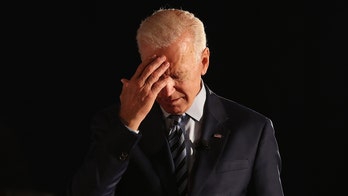Without question, the deepening economic crisis has pushed more people onto the welfare rolls. And President Obama is extending a hand to them by spending roughly a quarter of his massive economic stimulus bill -- $224 billion dollars -- on various forms of welfare support: Medicare, unemployment benefits, food stamps and the program known as Temporary Assistance for Needy Families (TANF).
But one conservative analyst believes it is a backhanded attempt to rollback the welfare reform of the Clinton era.
"The liberals in Congress never voted for welfare reformed. They opposed it all along," said Robert Rector, a senior research fellow on welfare and family issues at the Heritage Foundation.
"They expressed their loathing of it and now they are using this stimulus bill to murder welfare reform in the middle of the night -- hoping the American public will not find out what they're doing."
Rector was one of the architects of the 1996 welfare reform effort. Evidence shows that the effort to get people off of welfare and back to work succeeded.
The welfare rolls dropped 70 percent, employment of single mothers shot up and the child poverty rates dropped.
Rector believes the new law provides the states with an open checkbook for welfare payments.
The White House dispute that assertion, saying the extra money will only be there as long as it is needed.
"After those needs begin to dissipate, the economy's coming back, the spending on those programs automatically comes down," said Jared Bernstein, a chief economist for Vice President Biden. "It's called an automatic or cyclical stabilizer."
Conservatives say that will never happen because once the check book opens, it stays opens.
"It was very difficult to change the welfare system in the first place," Rector said. "And it will be very difficult to go back, particularly with this Congress and this president."
Rector said he believes the real welfare costs in this law could be $650 billion over 10 years.




